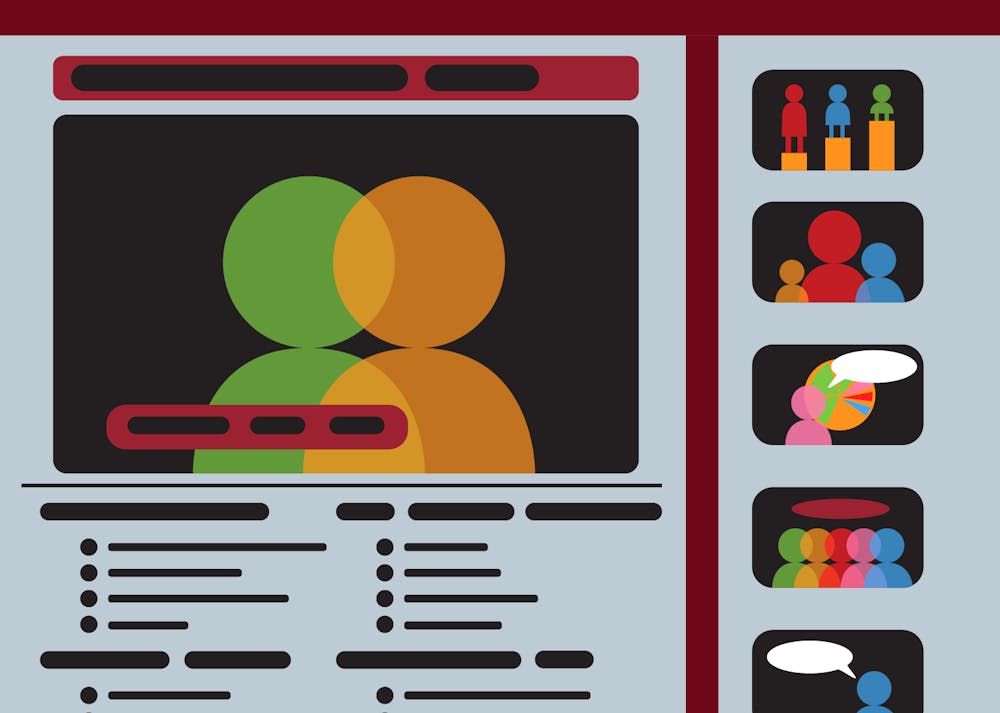With recent waves of racially heightened tensions rolling across the U.S., including the Stop Asian Hate and Black Lives Matter movements, many are left wondering: what is the role of universities in enabling a culturally conscious population?
ASU automatically enrolls first year students in alcohol education, prescription drug abuse and violence prevention courses that students are expected to complete. These are offered through a platform run by Everfi, a communications company that offers workplace and school social training programs.
Everfi does provide a curriculum specialized in teaching college students the base principles of diversity and inclusion, however, this diversity course isn't offered at ASU.
It is important that students of all backgrounds feel welcomed coming to campus and that the school is working to be inclusive.
"We as a university are responsible for preparing students to be productive and engaged members of society, not only from an economic standpoint but also to be engaged civically and contributing members of society more generally," said Molly Ott, an associate professor at ASU's Mary Lou Fulton Teachers College who studies organizational and administrative problems on college campuses.
That includes ensuring that students have the tools to work in diverse workplaces and be conscious of each others' differences, which will also help them to demonstrate their versatility to future employers.
"When graduates are in the job market, a lot of companies are looking to hire people with intercultural competence," Ott said.
The consensus over past years, however, seems to be that short-term diversity training is not all that effective, with the main concerns being that people may feel controlled and the aftereffects of most anti-bias trainings are far too temporary.
Although past studies may be disheartening, Ott said she is optimistic that things could be changing.
"A lot of the research of diversity training happens in a very different context, so I’m kind of optimistic that maybe we're in a different time now, and that there is this collective consciousness and awareness," Ott said. "Then these programs could actually be more effective than in the past because then, oftentimes it was just raw optics, or being forced to do it to settle a lawsuit."
In addition to this, the school's approach to diversity training can define the program's success. Teaching cultural competency is a collaborative effort focused on the synergy of different backgrounds rather than isolating or uplifting any single group, thereby utilizing distinct attributes to create a more harmonious society.
ASU teamed up with Starbucks in September of 2019 to release the corporation's "To Be Welcoming" curriculum, a 15-module diversity and inclusion self-paced online workshop.
Last September, ASU President Michael Crow released his statement "ASU's commitment to Black students, faculty and staff," where he declared that "ASU commits to implementing the 'To Be Welcoming' training for all continuing and new ASU employees and students." But it's been about six months, and there hasn’t been any further statement on the University's expectations for faculty and students to complete the training.
Additionally, individuals have to pay $99 to enroll in ASU's "To Be Welcoming" program to receive the certificate, which is primarily geared toward working professionals rather than college students. As of last year, Starbucks' version of the training was available for free, which is ironic because Starbucks is a for-profit company, whereas ASU is non-profit.
If ASU would rather implement a diversity curriculum akin to the "To Be Welcoming" training instead of Everfi's, the University should do so via Canvas module learning, similarly to how ASU's Community of Care trainings are offered.
All new students are automatically enrolled to the Community of Care courses on Canvas, and are required to complete the material. With ready-made, flexible solutions like these, there's no excuse for the school to remain irresolute.
"We should make a more concerted effort to embed social justice and equity concepts throughout that curriculum so it's not just like a 20-minute thing that somebody has to just check off the list," Ott said.
In order to bring about this longevity, ASU should foster opportunities for open dialogue and supplement the diversity and inclusivity training with many of the resources that are already available to students.
If ASU truly wants to live up to its reputation as an innovative university, it must teach its students to live and work in a globalized society.
Reach the columnist at srkrish5@asu.edu or follow @shradhakrish on Twitter.
Editor's note: The opinions presented in this column are the author's and do not imply any endorsement from The State Press or its editors.
Want to join the conversation? Send an email to opiniondesk.statepress@gmail.com. Keep letters under 500 words and be sure to include your university affiliation. Anonymity will not be granted.
Like The State Press on Facebook and follow @statepress on Twitter.
Continue supporting student journalism and donate to The State Press today.




